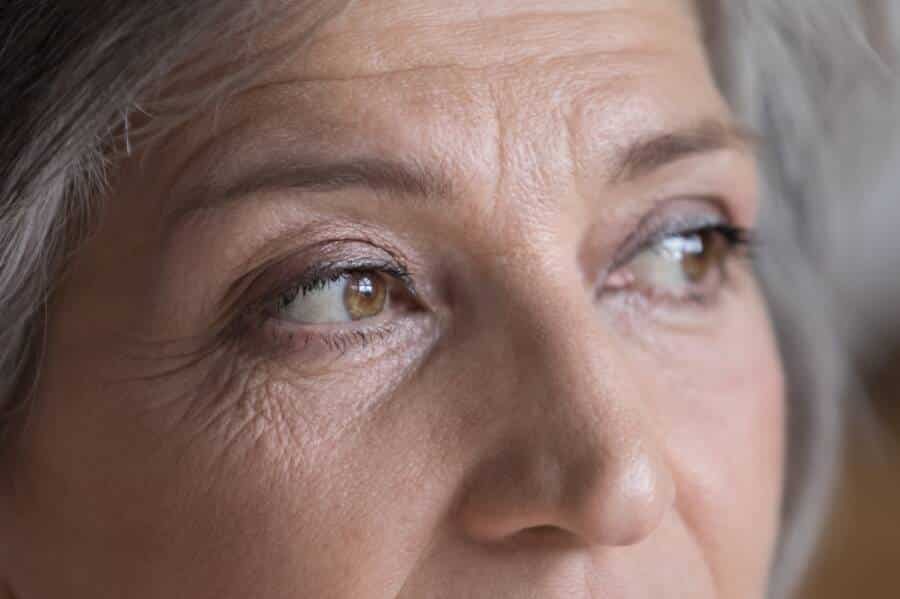8 Menopause Symptoms You’ll Wish You Knew Earlier!
Menopause is a natural, but often misunderstood, phase of life. It’s a journey with a lot of challenges and changes that can bring a lot of confusion and anxiety. Many women find themselves unprepared because even though menopause represents a phase of life that can’t be avoided, it’s still surrounded by mystery. We are not talking enough about it.
When you get older, everyone warns you about the hot flashes you could get over the night, or the brain fog that would make you forget a lot of things. In reality, menopause means much more and there are a lot of signs many women don’t know about. Even though, after 40, menopause can happen, many women tend to ignore the signs given by their bodies and blame it on stress or a busy schedule.
It’s important to mention that every woman’s body is different. For some women, menopause starts as they hit their forties, for others, it doesn’t hit until their late fifties. But no matter the phase you’re in, it’s essential to recognize its signs and better understand what your body is going to.

8 signs to watch for:
1. Brain fog that feels endless
When menopause is approaching, you might experience forgetfulness, a frustrating issue that makes even the simplest tasks feel like a mental marathon. Many women describe it as forgetting names or misplacing items more frequently. These symptoms are completely normal, and they are not a reason you should worry about. Fluctuations in estrogen and progesterone cause them and it affects neurotransmitters in the brain.
A lot of studies have shown how important estrogen is for brain function and how its decline can seriously impact memory, focus, and mental clarity. But, don’t panic! Brain fog is not permanent! All you need to do to keep your brain sharp is to manage stress, maintain a healthy diet, and engage in mental exercises like reading. Also, some doctors recommend omega-3 fatty acids and regular physical activity.
When experiencing brain fog, many women tend to believe they are dealing with serious conditions, but in reality, all of these changes can be easily caused by the new stage of their lives: menopause.
2. Significant hair changes
Another common sign of menopause is hair changes. The same fluctuations of estrogen and progesterone can cause hair thinning, dryness, and even shifts in texture. You might notice that your curls are losing their bounce or you can even deal with severe hair loss or bald patches. It can be getting really scary, but there are a lot of treatments to help you get back on track, once your body adapts to this new stage.
Volumizing shampoos and conditioners are great for managing these changes. Also, incorporating a diet rich in biotin, zinc, and iron will also help hair support.
Even though all these changes can feel overwhelming for women, who are usually very attached to their hair, they can also represent a great time for a look change and exploration of new hairstyles. Playing with your style when menstruation hits, it’s a great way to boost your confidence.

3. Dry skin
Menopause shows on your skin too. Many women experience itchy and dry skin, as estrogen levels decline. Estrogen is essential in maintaining skin elasticity. Without it, the skin can easily become prone to more dryness and an unpleasant aspect.
In case you noticed some of your favorite skin products don’t work on your skin anymore it might be because it’s time to update your routine and embrace the changes. Hydrating ingredients do an amazing job of balancing the dryness during menopause. So, opt for ingredients like hyaluronic acid, ceramides, and glycerin. Also, make sure you drink plenty of water and have a balanced diet.
Last but not least, don’t forget about the importance of sunscreen! Now that your skin is more sensitive, it’s the perfect time to introduce SPF 5O in your daily routine, even on cloudy days.
4. Mood swings
Mood swings are less surprising symptoms of menopause, but they can give you a hard time. The hormonal shifts can make you feel awful. It’s one of the most unpleasant things, to feel angry and sad at the same time, but not be able to do anything about it. One moment you might feel on top of the world, and the next, you are overwhelmed by irritability. These emotional changes can be destabilizing and very annoying especially when they happen without an obvious trigger.
If you experience mood swings, you need to focus more on self-care and communication with your loved ones. Keep in mind that regular exercise can be also very helpful and has been shown that it can boost endorphins and stabilize mood. Another great activity to fight against mood swings could be also meditation or journaling.
In case nothing works, and your emotions seem like taking control of your life, make sure to make an appointment and see your doctor as soon as possible. Sometimes hormone replacement therapy or natural supplements are what you need.
5. Sleep disruptions
Sleep disruptions are a common but still underestimated sign of menopause. Many women wake up multiple times during the night and experience severe night swears that leave them tossing. In order to combat this kind of disruption, you should create a sleep-friendly environment and keep your bedroom cool. Also, limiting caffeine and alcohol intake in the evening can help you improve your sleep quality and avoid dealing with nightmares.
In case these simple methods don’t work, try exercising before bed. Find a way to consume your energy. You can go for a walk or do some yoga. Anything that burns some calories can work great and make you feel instantly better and ready for a restful sleep.

6. Digestive issues
Digestive issues during menopause can be overwhelming. You can feel bloated, or even experience significant changes in bowel habits. The decline in estrogen and progesterone we already talked about can affect the gut’s microbiome, leading to slower digestion and increased sensitivity to certain foods.
If the meals you used to enjoy now make you feel uncomfortable, menopause might be the cause. Mindful eating is the first step in improving digestive health. So, make sure to incorporate as many high-fiber foods as possible: fruits, vegetables, and whole grains are some of the best options. Stay hydrated and make sure you exercise regularly in order to protect your gut’s health.
7. Increased sensitivity to alcohol or caffeine
During menopause, a lot of women notice they can no longer handle alcohol or caffeine the way they used to. So, if a single glass of wine makes you feel unusually tipsy or causes you a severe headache, or a cup of coffee disrupts your sleep all night, they might be signs of menopause. This kind of sensitivity is a sign not many women talk about. And to manage it, make sure to reduce the intake of these products. You can swap your afternoon coffee for herbal tea or decaf, and choose alcohol-free beverages during social events.
8. Tingling or prickling sensations
Pins and needle sensations in various parts of the body are another surprising sign of menopause. Many women tend to get worse and immediately consider more dangerous conditions, but it can be all caused by menopause. The fluctuating estrogen levels are those that influence the central and peripheral nervous systems.
To alleviate tingling sensations, focus on improving your overall nerve health. In order to do so, you need to exercise regularly, because this way, you will enhance circulation and significantly reduce stress. Also, make sure you incorporate in your diet vitamins like B6, B12, and magnesium.
Here are some amazing supplements for women during menopause. They can be found on Amazon and according to their reviews, their effects are amazing. However, make sure to speak to your doctor before purchasing anything like this.
Are you interested in learning more about healthy choices? You should also read: 9 Surprising Ways to Boost Your Immune System Naturally.




